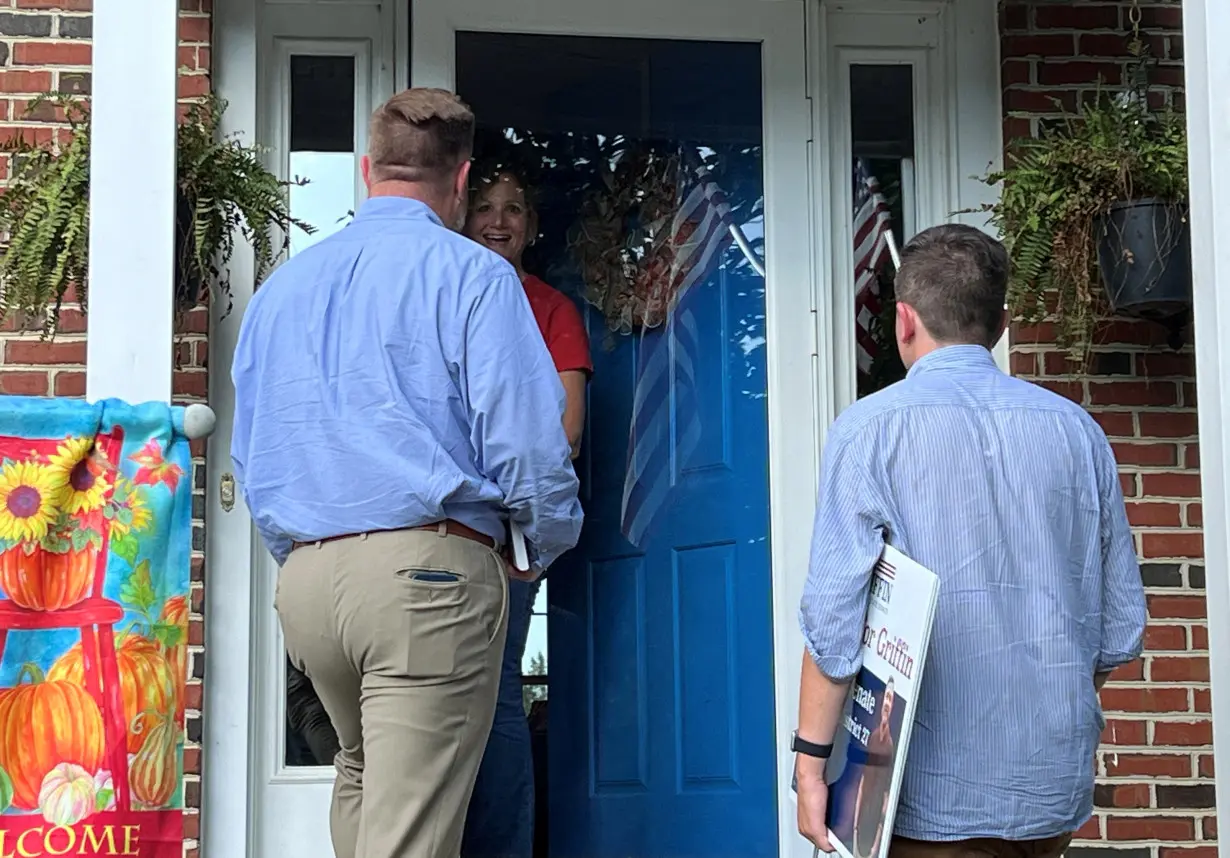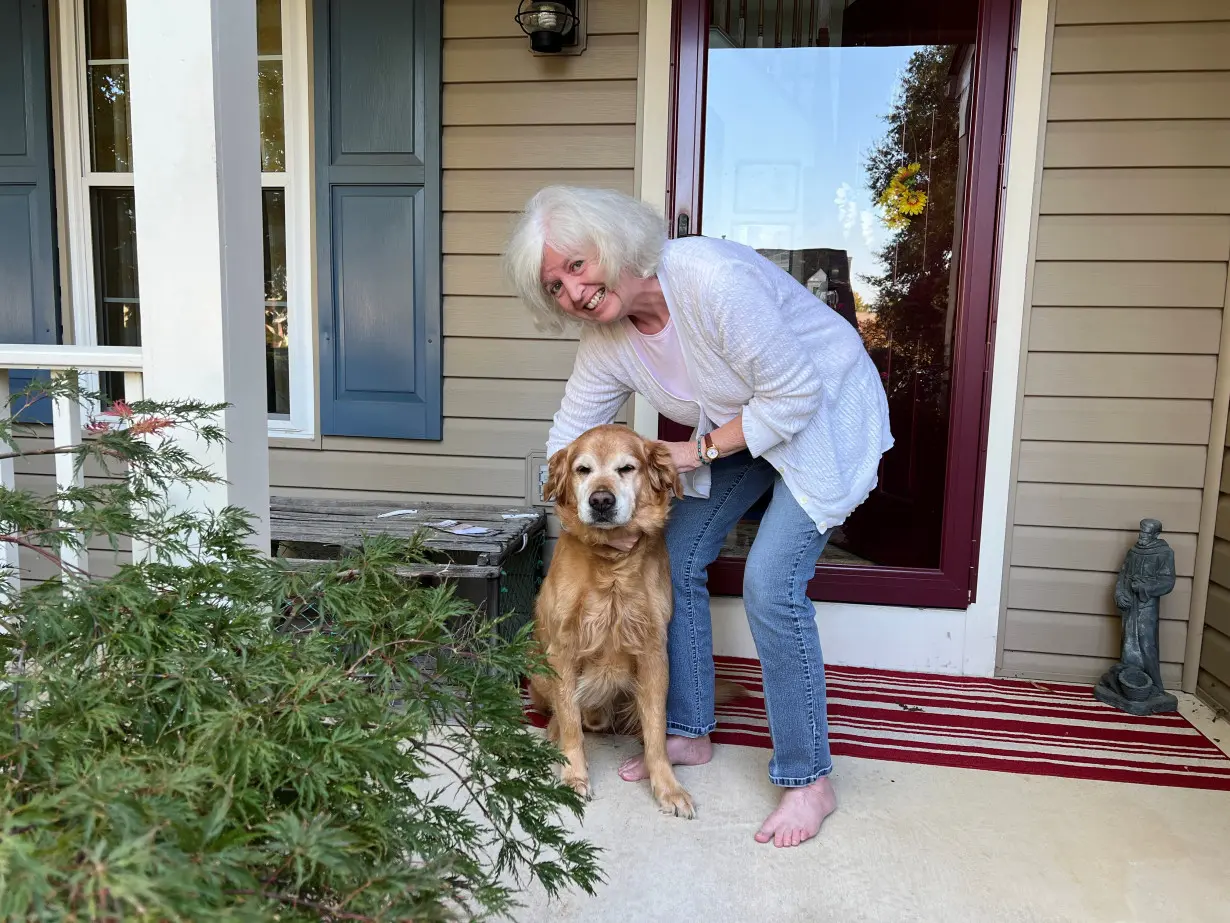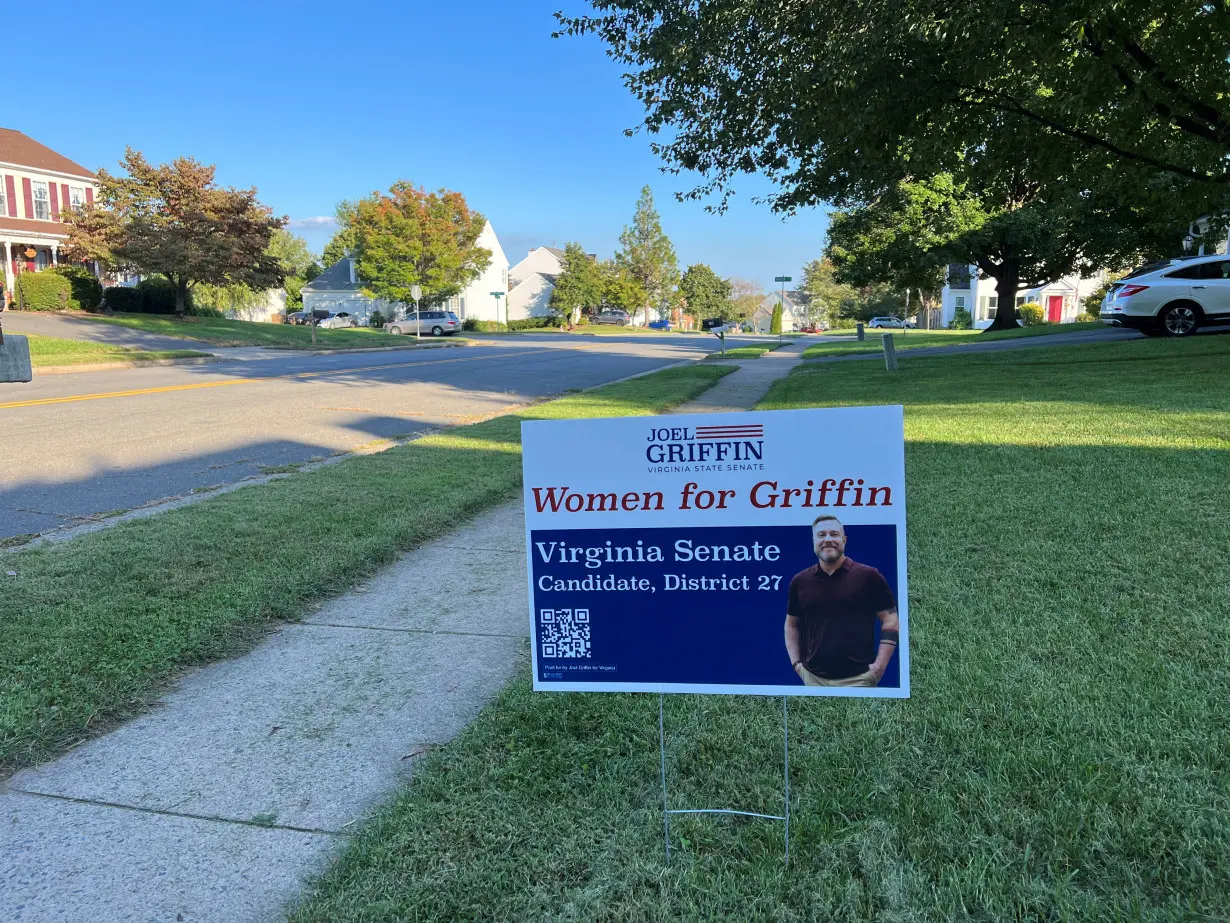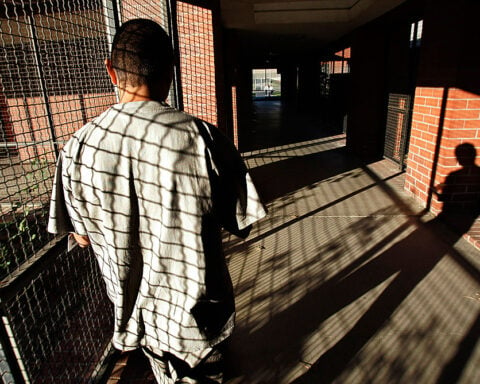By Gabriella Borter and Joseph Ax
STAFFORD, Virginia (Reuters) - At a community fair in Stafford, Virginia, this month, Britainy Riggins approached Democratic state Senate candidate Joel Griffin with a single question: Did he support a woman's right to have an abortion?
Riggins, a 36-year-old government administrator who has had an abortion, said preserving reproductive rights was top of mind for her as she considers voting in the state's Nov. 7 election. Griffin was eager to tell her that he had "always supported a woman's right to choose."
A year after abortion was widely credited with forestalling a Republican "red wave" in the 2022 U.S. midterm elections, the Virginia election offers a preview of whether the issue will remain as potent in 2024, when the presidency as well as Congress will be at stake.

Virginia is the only southern state that has not enacted an abortion ban in the wake of the U.S. Supreme Court's decision last year to eliminate a nationwide right, and the issue now dominates legislative races that will determine whether Republicans have the power to implement new restrictions.
Virginia Republicans, mindful of the backlash to a spate of stringent bans in other states, have coalesced around Republican Governor Glenn Youngkin's plan to limit abortions after 15 weeks of pregnancy, with exceptions for rape, incest and to save the mother's life. That position, they say, is a moderate compromise between a total ban and abortions without limits.
If that message succeeds, it could offer a blueprint for Republicans around the country on an issue that has bedeviled the party. A Republican sweep would also likely intensify calls from some party donors for Youngkin to step into the Republican presidential race, where former President Donald Trump holds a commanding lead for the party's nomination despite a litany of legal problems.

"I think most voters believe that abortion should not be banned, and most voters believe that there should be reasonable limits," said Todd Gilbert, the Republican speaker of the House of Delegates, who promised his party would not seek a tougher ban under his leadership.
A Gallup poll this year found that while 69% of U.S. adults support legal abortion in the first trimester, just 37% support it in the second.
Democrats argue even a 15-week limit is unacceptable and warn that Republicans might seek to restrict abortion further in the future.
They say the Virginia elections will reinforce that Republicans are out of step with U.S. voter sentiment on the issue, no matter what form of limit they support.
"This isn't just the last race of 2023 - it's the first race of 2024," said Susan Swecker, the state Democratic chair. "Virginia provides a roadmap for the next president."
DUELING ACCUSATIONS
Money has poured into Virginia ahead of the election.
The national Democratic Party has spent more than $3.5 million, while the States Project, a liberal group that focuses on state legislative races, this week announced $4.5 million in spending. Youngkin's Spirit of Virginia political action committee has raised more than $15 million since March.
Democratic candidates for both chambers had pulled in more than $67 million through August, and Republicans had raised $45 million, for a total of $113 million more than two months before Election Day, according to the non-profit Virginia Public Access Project (VPAP). In 2019, the last time both chambers were at stake, the candidates spent a total of $124 million.
Democrats hold a 22-18 advantage in the state Senate, allowing them to block Youngkin's 15-week measure so far, while Republicans have a 52-48 edge in the House.
Every seat in the state Senate and House is on the ballot in November, and control in each chamber is likely to come down to a handful of competitive districts.
One such race is in northern Virginia, where Griffin, a Marine Corps veteran, is vying for the open 27th Senate district against independent Monica Gary and Republican Tara Durant, who currently serves in the House of Delegates.
Like other Democrats in the state, Griffin has made protecting abortion rights a pillar of his campaign.
Democratic ads have featured abortion more than any other issue, the tracking firm AdImpact said on Twitter. Among the 14 most competitive races, as rated by VPAP, 13 of the Democrats mention abortion on their campaign websites, compared with five Republicans.
Republicans have focused on some of the issues that elevated Youngkin in the 2021 governor's race: the economy, public safety, education and parental rights.
They also accused Griffin's campaign of running disingenuous ads on abortion, saying his television spot misled viewers by portraying Durant as backing a no exceptions ban on abortion.
Durant declined to speak to Reuters at the Stafford fair. In an emailed statement, she said supports a 15-week limit with exceptions. In the past, she has stated that she believes life begins at conception.
Griffin's ad shows Democrats don't believe they can win simply by running against Youngkin's "common-sense" 15-week proposal, said Zack Roday, the coordinated campaigns director for Youngkin's PAC.
"It's just brazen fear-mongering," he said.
Even some voters who favor abortion rights told Griffin his ad had gone too far. When the Democrat knocked on the door of Mary Jane Mitchell-Musumarra, a 66-year-old retired Air Force civilian manager living in Stafford, she told him that she had already voted early for him but felt the ad was "ugly."
"I felt that it was taking advantage of people's pro-life, pro-choice perspectives and aggrandizing them," she said.
Griffin defended the ad, telling Reuters it was about "policy and issues," not a personal attack. The ad cited Durant’s past votes on abortion regulations and a Facebook post she made celebrating the Supreme Court’s overturn of Roe v. Wade.
(Reporting by Gabriella Borter in Stafford, Virginia and Joseph Ax in New York; Editing by Colleen Jenkins and Aurora Ellis)

 Germany sees meat exports to EU continuing after foot-and-mouth case
Germany sees meat exports to EU continuing after foot-and-mouth case
 Parliament speaker to lead Taiwan delegation to Trump's inauguration
Parliament speaker to lead Taiwan delegation to Trump's inauguration
 German economy contracted 0.2% in 2024
German economy contracted 0.2% in 2024
 Middle East latest: Palestinian prime minister says Palestinian Authority should run Gaza in future
Middle East latest: Palestinian prime minister says Palestinian Authority should run Gaza in future
 Nokia signs multi-year patent license agreement with Samsung
Nokia signs multi-year patent license agreement with Samsung
 Irish parties secure 'comfortable majority' for new government
Irish parties secure 'comfortable majority' for new government
 Bayern Munich signs US youngster Bajung Darboe from LAFC
Bayern Munich signs US youngster Bajung Darboe from LAFC
 Novak Djokovic breaks a tie with Roger Federer for the most Grand Slam matches in tennis history
Novak Djokovic breaks a tie with Roger Federer for the most Grand Slam matches in tennis history
 China's RedNote: what you need to know about the app TikTok users are flocking to
China's RedNote: what you need to know about the app TikTok users are flocking to








